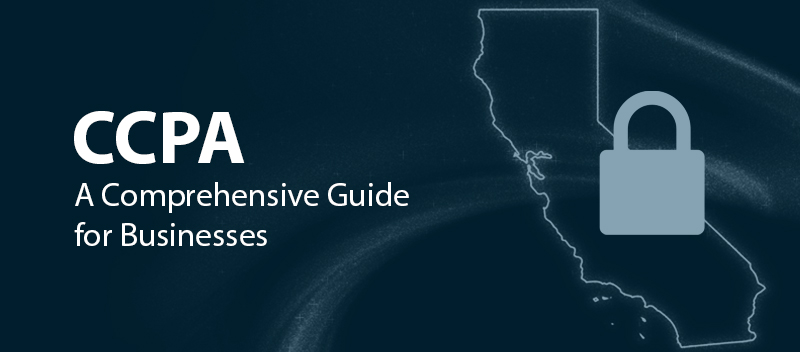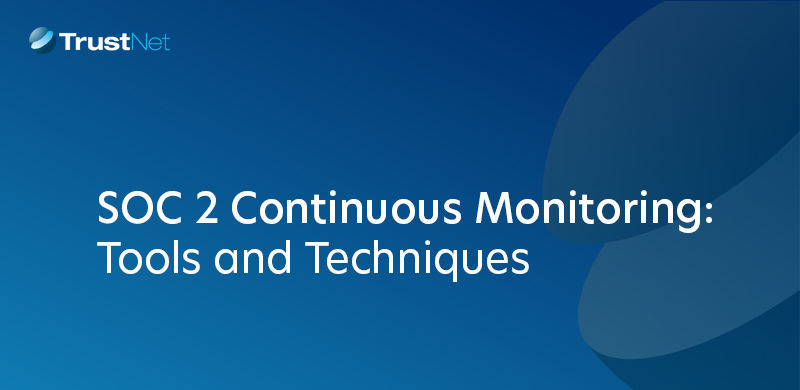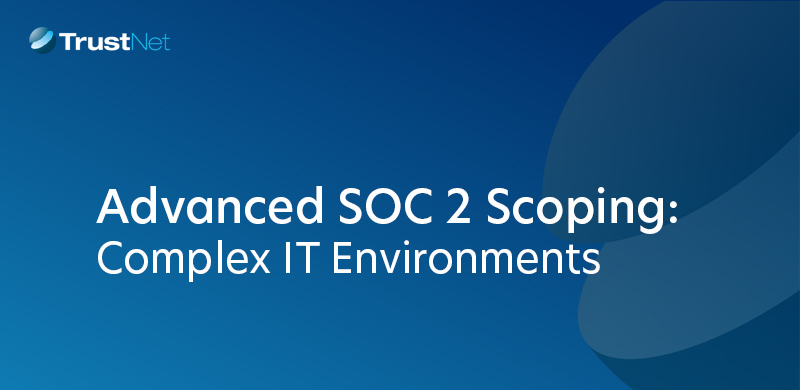Understanding CCPA: A Comprehensive Guide for Businesses

The California Consumer Privacy Act (CCPA) is a landmark law that has reshaped the landscape of consumer privacy rights in the United States. The CCPA represents a pivotal shift in the balance of power between consumers and businesses regarding data privacy.
The CCPA is distinctive for its broad definition of personal information and for establishing a new consumer privacy framework that significantly impacts how businesses collect, use, and manage consumer data. Specifically, it grants California residents the right to know about the personal information collected about them, the purpose of its collection, and who it is shared with. It also allows consumers to opt out of the sale of their personal information and request the deletion of their data.
For businesses operating within California, the CCPA is not just a legal requirement but also a strategic imperative. Compliance is crucial to avoid hefty fines and penalties, but more importantly, it presents an opportunity to build trust and transparency with consumers.
This whitepaper aims to demystify the CCPA, providing businesses with a detailed understanding of the act’s requirements, the rights it grants consumers, and practical steps for achieving compliance.
Scope and Applicability of CCPA
This section elucidates the vast scope of the CCPA, defining the nature of businesses and data it encompasses, and outlines the critical requirements and rights introduced by the act.
Businesses Covered by the CCPA
The CCPA’s applicability is broad, encapsulating various organizations that engage with the personal data of California residents. Primarily, the law applies to for-profit entities that conduct business in California and satisfy one or more of the following thresholds:
Annual Gross Revenues: Any business with annual gross revenues exceeding $25 million.
- Volume of Data Transactions: Entities that annually buy, receive, sell, or share for commercial purposes the personal information of 50,000 or more California consumers, households, or devices.
- Revenue from Selling Data: Businesses that derive 50% or more of their annual revenues from selling consumers’ personal information.
Additionally, service providers acting on behalf of these businesses and third parties who receive personal information for business purposes are also roped into the compliance requirements, albeit with distinct obligations and operational limitations[3].
Data Covered by the CCPA
The CCPA provides a comprehensive definition of personal information, ensuring extensive coverage that includes:
- Personal Information: Information that identifies, relates to, describes, or can be linked, directly or indirectly, with a particular consumer or household. Examples include names, addresses, email addresses, social security numbers, internet browsing history, geolocation data, and biometric information.
- Unique Identifiers: Digital constructs like IP addresses, device IDs, and online usernames that can be associated with individual persons or devices.
- Commercial Information: Records of personal property, products, or services purchased, obtained, or considered, along with other purchasing or consuming histories or tendencies.
- Internet or Network Activity: Information regarding a consumer’s interaction with a website, application, or advertisement, including browsing and search history.
- Inferences Drawn from Other Data: Profiles reflecting a person’s preferences, characteristics, psychological trends, predispositions, behavior, attitudes, intelligence, abilities, and aptitudes.
Understanding the broad spectrum of data covered under the CCPA is crucial for businesses to ensure comprehensive compliance and protection of consumer rights.
Learn more about our cybersecurity and compliance services Here
CCPA Compliance Essentials
This section aims to unpack the essentials of achieving CCPA compliance, focusing on developing compliant data collection and processing practices as well as establishing aligned privacy policies and disclosures.
1. Comprehensive Data Inventory
The foundation of CCPA compliance lies in understanding the personal information (PI) your organization collects and processes. A complete inventory of PI allows businesses to track data from collection to deletion, ensuring all activities align with CCPA requirements. This entails identifying the types of data collected, the purposes for which they are used, and third parties with whom the data may be shared.
2. Privacy Policy Formulation
A well-structured privacy policy is a CCPA mandate, guiding consumers about their rights and how to exercise them. Your privacy policy should detail the categories of personal information collected, purposes of collection, consumer rights under the CCPA, and methods for submitting requests. Regular updates reflecting changes in practices or regulations are crucial for maintaining transparency and compliance.
3. Consumer Request Processes
Establishing efficient processes to handle consumer requests is pivotal. This includes mechanisms for accessing, deleting, and opting out of the sale of personal information. Implementing user-friendly systems that allow consumers to submit requests and receive timely responses easily is essential for compliance.
4. Technical Data Collection Controls
Adopting technical controls to regulate the collection and processing of personal information is crucial. These controls should ensure that data collection aligns with declared purposes and that unnecessary data accumulation is avoided. Employing technologies that facilitate data minimization and purpose limitation can significantly enhance compliance efforts.
5. Robust Data Security Measures
Securing personal information against unauthorized access and breaches is a core requirement of the CCPA. Implementing strong encryption, access controls, and regular security audits helps safeguard personal information, mitigating the risk of breaches and non-compliance.
6. Third-Party Audits and Vendor Management
Conducting regular audits of third-party service providers ensures they adhere to CCPA requirements when handling personal information on your behalf. Establishing clear data protection agreements and conducting due diligence are critical steps in managing third-party risks.
7. Comprehensive Employee Training
Educating employees about CCPA requirements and your organization’s data protection policies is vital. Regular training sessions should cover data handling, consumer rights, and procedures for addressing consumer requests.
8. Incident Response and Breach Notification
Developing an effective incident response plan prepares organizations to address data breaches swiftly. The CCPA requires timely breach notifications to affected individuals, making it imperative to have a well-defined breach identification, assessment, and notification process.
9. Ongoing Review and Improvement
Regular internal reviews of CCPA compliance practices help identify areas for improvement. This includes evaluating the effectiveness of data handling practices, consumer request processes, and security measures.
10. Documentation and Record Keeping
Maintaining comprehensive records of data collection, processing activities, and consumer requests fulfills CCPA documentation requirements. This aids in demonstrating compliance efforts during regulatory audits or inquiries.
11. Effective Communication
Clear and open communication channels within organizations and with consumers are crucial for CCPA compliance. Ensuring all stakeholders are informed about privacy practices and compliance measures builds trust and facilitates compliance.
Consumer Rights under CCPA
This section elucidates the rights granted to consumers under the CCPA and offers strategies for effectively managing consumer requests and inquiries.
The CCPA introduces several pivotal requirements for businesses and confers a set of rights upon California consumers to enhance transparency and control over personal information.
Key aspects include:
- Right to Know and Access: Consumers can request information about collecting, using, and sharing their personal data. This includes data portability, where businesses must provide consumers with their personal information in a readily usable format, enabling them to transmit the data to another entity without hindrance.
- Right to Deletion: Subject to certain exceptions, individuals can demand the deletion of their personal information held by businesses.
- Right to Opt-Out: California residents can opt out of businesses selling their personal information.
- Right to Non-Discrimination: The CCPA prohibits businesses from discriminating against consumers who exercise their rights under the act.
Strategies for Handling Consumer Requests and Inquiries
Effectively managing consumer rights requests is critical for CCPA compliance and fostering consumer trust. Below are strategies businesses can implement:
1. Develop Clear Processes: Establish streamlined processes for receiving, verifying, and responding to consumer requests. This includes setting up designated request channels like a toll-free number and an online form.
2. Train Staff: Ensure employees handling consumer inquiries are well-trained on CCPA requirements and your organization’s privacy practices. Regular training sessions can help maintain high preparedness and responsiveness.
3. Implement Verification Methods: Develop secure methods to verify the identity of requestors to protect consumer information from unauthorized access and fraudulent requests.
4. Maintain Transparent Communication: Keep consumers informed throughout the request process. Acknowledge receipt of their requests promptly and communicate clear timelines for when they can expect a response.
5. Record Keeping: Document all consumer requests and your responses to them. This not only aids in regulatory compliance but also provides valuable insights for improving your privacy practices.
6. Review and Update: Regularly review your consumer request handling processes and make necessary adjustments to align with evolving compliance requirements and best practices.
CCPA Enforcement and Penalties
This section aims to provide an in-depth look at the CCPA’s enforcement framework and the potential legal and financial repercussions businesses might face if they fail to adhere to the law.
CCPA Enforcement Mechanisms and Regulatory Bodies
The primary body responsible for enforcing the CCPA is the California Attorney General’s Office. The Office has been vested with broad powers to investigate and prosecute violations of the privacy law.
Businesses found violating the CCPA are typically issued a notice of non-compliance and given 30 days to rectify the issues. If businesses fail to address the concerns within this period, the Attorney General’s Office may take legal action.
Additionally, the CCPA has introduced a unique provision allowing consumers to act as enforcers. Under certain conditions, such as data breaches resulting from a business’s failure to implement reasonable security measures, consumers may have the right to initiate private lawsuits against the violating entity.
Potential Legal and Financial Consequences of Non-Compliance
— Legal Consequences
Non-compliance with the CCPA attracts regulatory scrutiny and exposes businesses to potential class-action lawsuits, especially in cases of data breaches. These legal battles can result in injunctive or declaratory relief and might necessitate significant changes in business practices, in addition to the financial liabilities.
— Financial Penalties
The financial repercussions for failing to comply with the CCPA can be substantial. For unintentional violations of the Act, businesses may incur fines of up to $2,500 per violation. However, for intentional violations, where businesses knowingly or willfully disregard the law, the penalty can soar up to $7,500 per violation.
Further, in data breach scenarios, affected consumers can seek damages ranging from $100 to $750 per consumer per incident or actual damages, whichever is greater. This provision significantly increases the financial stakes for businesses, particularly in large-scale breaches affecting numerous consumers.
Notably, these penalties are applied per violation, which means that the costs can quickly accumulate for businesses handling large volumes of personal information or those with widespread non-compliance issues.
Preparing for CCPA Compliance and Ongoing CCPA Compliance Management
A systematic approach involving a readiness assessment followed by the development of a comprehensive compliance plan can help organizations effectively meet CCPA requirements. This section will guide you through these critical steps.
Conducting a CCPA Readiness Assessment
A CCPA readiness assessment is an evaluative process designed to gauge an organization’s current level of compliance with CCPA and identify areas requiring improvement. This assessment is pivotal in laying the groundwork for a robust compliance strategy.
1. Understanding Personal Information Handling
Begin with an in-depth analysis of how personal information is handled within your organization. This includes identifying what personal information is collected, the sources from which it is collected, the purposes for its collection and processing, and the third parties with whom it is shared.
2. Evaluating Data Processing Activities
Assess your organization’s data processing activities to ensure they comply with CCPA provisions. This involves evaluating policies and practices related to personal information processing, storage, and security. Special attention should be given to data minimization, purpose limitation, and data retention practices to ensure they meet CCPA standards.
3. Risk Assessment and Cybersecurity Audits
Performing a risk assessment and partnering with experts like TrustNet is crucial to identify potential vulnerabilities that could lead to unauthorized access or disclosure of personal information. These assessments help organizations understand the risks associated with processing sensitive personal information and guide them in implementing appropriate security measures to mitigate such risks.
4. Review of Third-Party Relationships
Given the CCPA’s provisions regarding third-party data sharing and selling, organizations must carefully assess and manage their third-party relationships. Evaluate vendor data privacy controls against CCPA using specific questionnaires to ensure their practices align with CCPA requirements.
Developing a Comprehensive CCPA Compliance Plan
Following the readiness assessment, the next step is to develop a comprehensive CCPA compliance plan tailored to address identified gaps and fortify data protection and privacy practices.
1. Actionable Remediation Strategies
Establish actionable remediation strategies to address compliance gaps based on the readiness assessment findings. This may involve revising data collection and processing practices, enhancing data security protocols, updating privacy policies, and implementing more effective consent management processes.
2. Policy and Procedure Updates
Update internal policies and procedures to ensure they accurately reflect CCPA requirements. This includes updating privacy notices to provide clear, transparent information about data collection practices, consumers’ rights under CCPA, and how consumers can exercise these rights.
3. Implementing Consumer Rights Management Processes
Develop and implement efficient processes for managing consumer requests, including requests for access, deletion, and opting out of the sale of personal information. Ensure these processes are user-friendly and capable of verifying the identity of requestors to protect consumer privacy.
4. Employee Training and Awareness Programs
Conduct comprehensive training and awareness programs for employees to ensure they understand CCPA requirements and their role in ensuring compliance. Regular training helps foster a culture of privacy and security within the organization.
5. Continuous Monitoring and Improvement
Establish mechanisms for ongoing monitoring and review of compliance efforts. Regular audits, risk assessments, and reviews of data processing activities help ensure that compliance measures remain effective and adapt to changes.
Leveraging Expert Guidance for CCPA Compliance
The CCPA is a vital regulation safeguarding consumer privacy rights, and the role of expert guidance and solutions, such as those provided by TrustNet, cannot be overstated.
Businesses seeking to achieve or maintain CCPA compliance will find a reliable ally in TrustNet, ensuring they meet legal obligations and foster a culture of privacy that resonates with consumers and stakeholders alike.




